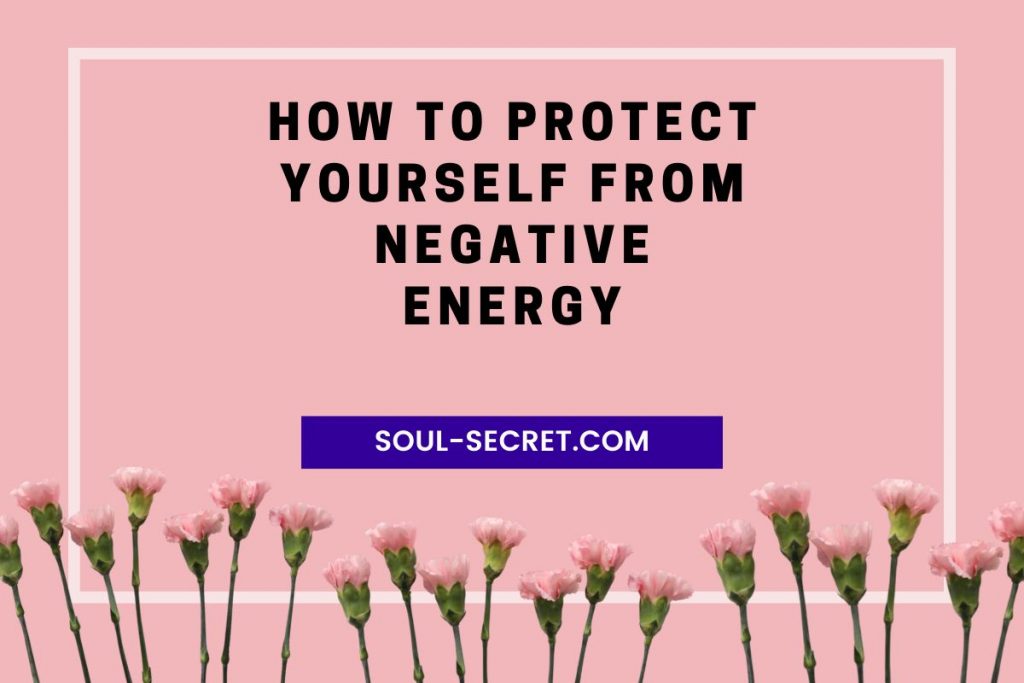
Negative energy is something that everyone experiences at some point in their lives. Whether it’s a person or situation, negative energy can affect us negatively and even cause harm. How do we deal with negative energy?
Negative energy is often associated with fear, anger, jealousy, envy, greed, hatred, resentment, etc. These emotions are usually triggered by external events such as relationships, health, finances, career, etc.
Negative energy is a natural part of life. Everyone has experienced it at least once in their lifetime. The key is to and manage these feelings before they become harmful.
There Are Few Ways To Protect Yourself From Negative Energy
1. Be Aware Of What’s Going On Around You
When we are exposed to negative energies, they can have a profound effect on our physical bodies and minds. We may feel pain, nausea, headaches, fatigue, anxiety, depression, confusion, anger, fear, etc. These symptoms are caused by the body’s attempt to protect us from the negative energy that has entered into our system.
Be aware of the people around you. If they seem to be having a bad day, avoid them. They might be spreading their negativity to you.
Negative energy can cause stress on your mind and body. When you’re stressed out, your immune system gets weaker and you become susceptible to illness. This means that if you want to stay healthy, you need to keep your emotions in check.
2. Don’t Feed Into Negative Thoughts
If you notice that you’re feeling down, don’t let it get to you. Instead, focus on things that make you happy. Spend some quality time with friends and family, go outside and enjoy nature, or do anything else that makes you feel good.
If you find yourself getting angry over something that doesn’t really matter, take a few deep breaths and try to relax. Try to think about something else instead of dwelling on the issue.
If you notice that you’re feeling down, don’t let it get to you. Instead, focus on things that make you happy. Spend some quality time with friends and family, go outside and enjoy nature, or do anything else that makes you feel good.
3. Find Ways To Cope With Stress
Stress can be defined as any situation that causes physical, emotional, mental, or spiritual discomfort. In other words, stress is anything that makes us feel uncomfortable. There are many different types of stress, but they all have one thing in common: They make us feel uneasy. Stress comes from outside forces, like our environment, and inside forces, like our thoughts.
When we experience stress, our bodies release chemicals called hormones into the bloodstream. These hormones tell our body what to do and how to react. Our brain receives these signals and interprets them as either positive or negative. If the signal is perceived as negative, then the body releases cortisol, adrenaline, and norepinephrine. This is known as the fight-or-flight response. Cortisol helps the body prepare for action. Adrenaline increases heart rate and blood pressure. Norepinephrine stimulates breathing and sweating.
There are several ways to cope with stress. The key is to identify the source of the problem and take action accordingly. For example, if you are having trouble sleeping because of anxiety, try taking deep breaths before going to bed.
4. Learn To Control Your Emotions
Learn how to identify negative emotions before they take over your life. Emotions are a natural part of life. They can help us make decisions and they can motivate us to do things. However, if we let our emotions run wild, they can cause problems. When we feel angry, sad, frustrated, etc., we may act out that emotion by yelling at someone, hitting them, throwing something away, etc.
Negative energy is often associated with anger, fear, anxiety, jealousy, resentment, and frustration. When you experience these emotions, you may notice that you become tense, irritable, and even aggressive.
If we don’t learn how to control our emotions, then they can take over our lives and ruin relationships, jobs, and even health.
5. Practice Mindfulness
Mindfulness is the practice of being aware of what is happening in the present moment without judgment. When we are mindful, we can observe our thoughts, feelings, sensations, and actions without reacting to them. We can learn how to notice negative emotions before they take over us.
Mindfulness has been proven to reduce stress and anxiety, improve sleep quality, and increase productivity. In addition, it also improves self-awareness and empathy.
Mindfulness is defined as “the awareness that arises through paying attention on purpose, in the present moment, and non-judgmentally” . This practice is often associated with meditation but can also be practiced while doing other activities. In this video we will learn how to cultivate mindfulness in our daily lives.
When we are mindful, we become aware of what we are thinking and feeling and recognize that our thoughts and feelings are not who we are. We do not have to react to them, nor do we need to get caught up in them. Instead, we can simply observe them from a distance, like watching clouds float across the sky.
There are many ways to cultivate mindfulness. Here are three simple ones:
a) Find time each day to sit quietly and reflect on your life. Ask yourself questions about what matters to you. What makes you happy? What brings you joy? What are you grateful for?
b) Practice being kind to yourself. Say thank you out loud every time you notice something good inside yourself. Give compliments to others when they deserve them.
c) Take a walk outside. Breathe deeply and pay close attention to your surroundings. Notice the sights, sounds, smells, and sensations around you.
In conclusion, we all experience negativity from time to time, so it’s important to learn how to manage our reactions to it.